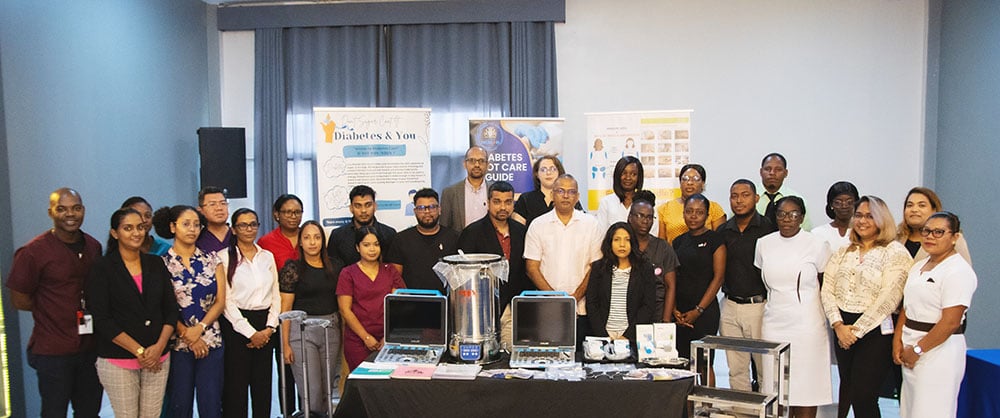In its push to address diabetes, the Ministry of Health yesterday said that it has adopted a host of measures including expanded access to diabetic retinal examinations and greater accessibility of key therapeutics such as insulin.
In a statement to mark World Diabetes Day on November 14, the ministry said it has implemented HbA1C testing as a standard tool for diagnosing and monitoring diabetes, especially for patients needing precise blood sugar management. HbA1C tests provide a three-month average of blood glucose levels, offering a more comprehensive view of blood sugar control over time than traditional glucose tests. The statement said that this advanced screening tool is now accessible in 82 health facilities nationwide.
To prevent and manage one of the leading complications of diabetes, the Ministry said it has also expanded access to diabetic retinal examinations. Patients can now receive regular eye exams to detect and address retinopathy, a serious complication of diabetes that can lead to blindness if left untreated. Equipped with specialised diagnostic tools, ophthalmology clinics are now available in four health facilities, providing vital eye care services to at-risk patients.
In response to the high risk of kidney disease associated with diabetes, the Health Ministry has also expanded nephrology services across regional hospitals, allowing diabetic patients to receive regular kidney function tests and specialised nephrology care. By improving access to kidney health services, the Ministry says it aims to reduce the incidence of diabetic nephropathy and support early intervention.
The number of foot clinics nationwide has also been increased to reduce the risk of diabetic foot complications, such as infections and ulcers that can lead to amputation. These clinics offer regular foot examinations, wound care, preventive services, and education on proper foot care to help patients avoid injury and infection, the ministry’s statement said. The foot clinics provide essential care and support for diabetic patients, especially those with reduced sensation or blood circulation in their lower limbs, the statement said.
Availability of medications for patients living with diabetes is vital, hence the Ministry says it has secured a steady supply of diabetes medications, ensuring that patients throughout Guyana can access essential treatments for managing their condition.
“Insulin and other drugs are now more accessible at public health facilities, reducing the financial burden on patients”, the ministry said.
The Ministry said that just recently an updated national guideline for preventing and treating diabetes was introduced in the health sector. This evidence-based guideline outlines best practices in diabetic management, focusing on lifestyle modification, early diagnosis, and comprehensive treatment plans. It also underscores the importance of regular monitoring and patient education, supporting healthcare providers to deliver the most effective and individualised care possible, the statement said.




